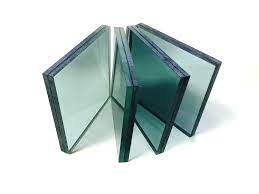
Insulated Glass
Insulated glass, also known as double glazing or insulated glass units (IGUs), consists of two or more glass panes separated by a spacer and sealed to create an insulating air space. This design improves thermal performance, reduces energy consumption, and enhances comfort within buildings. Insulated glass is widely used in windows, doors, and facades to provide superior insulation and soundproofing.
Benefits of Insulated Glass
Insulated glass significantly reduces heat transfer, helping to maintain consistent indoor temperatures and lower heating and cooling costs.
By minimizing drafts and cold spots near windows, insulated glass creates a more comfortable indoor environment.
The air space between the panes acts as a barrier to sound, reducing noise pollution from outside and creating a quieter interior.
Insulated glass reduces the likelihood of condensation forming on the inside surface of windows, maintaining clear views and preventing moisture damage.
Insulated glass can be equipped with low-emissivity (Low-E) coatings that block harmful UV rays, protecting furnishings and interior finishes from fading.
Available in various configurations, including different glass types, coatings, and spacers, insulated glass can be tailored to meet specific performance and design requirements.
The multiple layers of glass in IGUs can provide an added level of security compared to single-pane windows, enhancing protection against break-ins.
By improving energy efficiency, insulated glass helps reduce the overall carbon footprint of a building, contributing to environmental sustainability.

